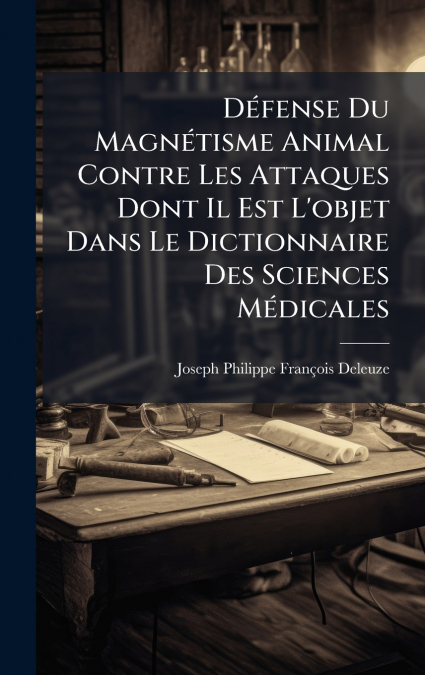
Joseph Philippe François Deleuze
Défense Du Magnétisme Animal Contre Les Attaques Dont Il Est L’objet Dans Le Dictionnaire Des Sciences Médicales, written by Joseph Philippe François Deleuze and originally published in 1819, is a significant historical document in the study of animal magnetism (also known as mesmerism) and its place within the scientific debates of the early 19th century. Deleuze, a prominent figure in the French intellectual landscape, passionately defends the theories and practices of animal magnetism against the criticisms leveled at it in the esteemed Dictionnaire des Sciences Médicales. This work provides invaluable insights into the controversies surrounding animal magnetism, shedding light on the challenges it faced in gaining acceptance within the established medical and scientific community. Deleuze’s detailed arguments and his defense of empirical observation contribute to a rich understanding of the intellectual currents of the period. It remains a vital resource for historians of science, medicine, and the occult, illustrating the enduring fascination with the interplay of mind, body, and unseen forces.This work has been selected by scholars as being culturally important, and is part of the knowledge base of civilization as we know it. This work was reproduced from the original artifact, and remains as true to the original work as possible. Therefore, you will see the original copyright references, library stamps (as most of these works have been housed in our most important libraries around the world), and other notations in the work.This work is in the public domain in the United States of America, and possibly other nations. Within the United States, you may freely copy and distribute this work, as no entity (individual or corporate) has a copyright on the body of the work.As a reproduction of a historical artifact, this work may contain missing or blurred pages, poor pictures, errant marks, etc. Scholars believe, and we concur, that this work is important enough to be preserved, reproduced, and made generally available to the public. We appreciate your support of the preservation process, and thank you for being an important part of keeping this knowledge alive and relevant.